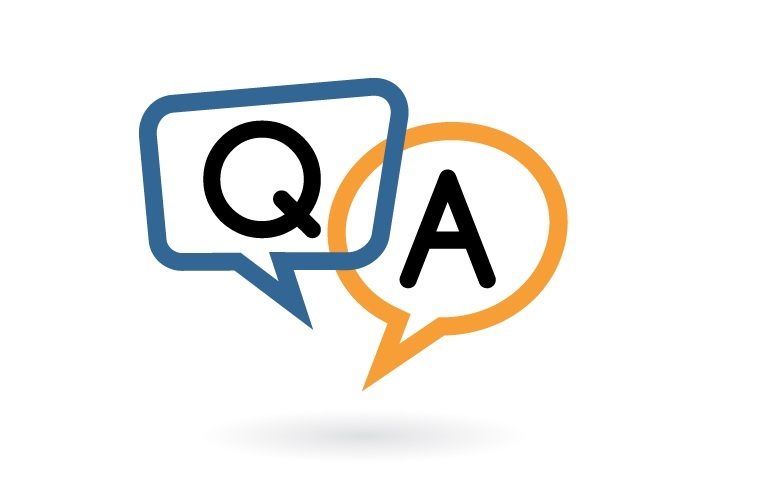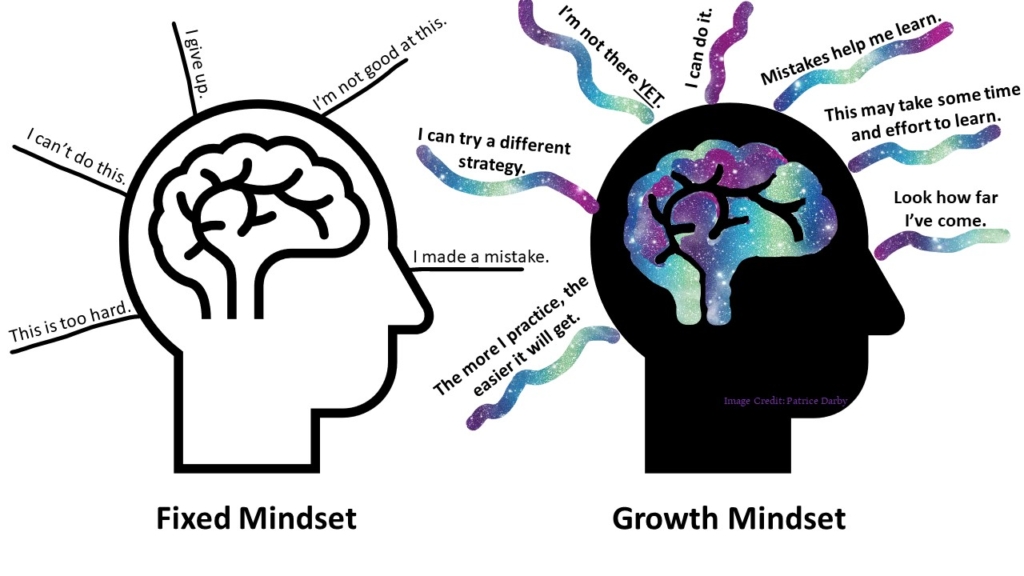Academic Dismissal, Notice, & Warning
Academic Standing
At the end of each semester and summer session, the Office of the Registrar evaluates every student’s record to determine his or her academic standing.
A student whose cumulative grade-point average is 2.00 or higher is in good academic standing.
A student who earns a grade-point average of less than 2.00 in any single semester is given an academic warning.
A student whose cumulative grade-point average falls below 2.00 is either placed on academic notice or is dismissed from the College.
For a full listing of academic policies, click here.
Academic Dismissal
Advice for Students Who Have Been Academically Dismissed
We know that some students are not as successful as they wish to be at St. Mary’s College of Maryland. SMCM requires that students meet a minimum cumulative GPA of 2.0 (C average). Students who have been on Academic Notice (their cumulative GPA was below a 2.0) for at least one semester face Academic Dismissal if they do not show improvement by the end of the following semester.
We understand that success does not always follow a predictable path. We know that college students have complicated lives, and that personal, financial, health and family issues may have affected your academics. Our goal is to help you identify the factors that are relevant to you and to help you address them. You should also know that you are not alone in experiencing difficulties. Other students are in the same boat, and by spending some time away from SMCM, reflecting on their academic goals, gaining confidence, learning some helpful strategies, and reaching out to others for support, many return to the College and have a successful academic career at SMCM.
What Are Your Options?
Appeal the Dismissal
You may appeal the dismissal by submitting the Academic Policy Appeal Form, which includes writing a letter addressed to the Academic Policy Committee. Your letter should thoughtfully tell the Committee why you believe your dismissal should be rescinded and should contain all information you wish the Committee to have when they consider your appeal, including statements from instructors and physicians/clinicians as appropriate. Consider including information such as:
- What extenuating circumstances led to your dismissal?
- What actions did you take during the semester to try to improve your academic performance? What are the reasons that those actions were insufficient to prevent your dismissal?
- Specifically, what steps will you take to improve your grades if you are allowed to return?
- What additional information will be helpful for the committee to consider?
Your appeal must be received by the deadline noted in your dismissal letter from the Registrar’s Office. To facilitate prompt receipt of your appeal, we will accept it by UPS or FedEx, by fax at (240) 895-4449, or as an email attachment to registrar@smcm.edu.
If your appeal is granted, the academic dismissal will be noted on your transcript, but you will be allowed to return on Academic Notice, which will also be noted on your transcript (see the Advice for Students on Academic Notice section below). You will also have to agree to certain conditions, such as credit limitations and meetings with your advisor, in order to be allowed to return for a probationary semester. Please note: If you are academically dismissed a second time, you will not be able to appeal the decision.
If You Do Not Submit an Appeal or The Appeal is Denied
If you do not submit an appeal or your appeal is denied, your course registration for next semester will be canceled and the fees or deposits you have paid will be refunded.
If You Wish to Return
If this is the first time you have been academically dismissed, you will be eligible to reapply for admission to the College after an absence of one year. You will need to take courses elsewhere and make good grades that, when combined with your cumulative St. Mary’s College GPA, will come to a minimum cumulative GPA of 2.00, and/or make other changes in your circumstances that will contribute to a more successful academic experience on campus.
Questions about Academic Dismissal
For questions about the dismissal and/or appeal process, please contact the Office of Student Success (OS3) at 240-895-4388 or os3@smcm.edu. If you have questions about your financial aid, please contact the Office of Student Financial Assistance (OSFA) at 240-895-3000 or osfa@smcm.edu. If you have questions about housing, please contact the Office of Residence Life at 240-895-4207.
What Should You Do While on Academic Dismissal?
Each student is different. This may be a good opportunity for you to reflect on your academic experience, your goals, what went well and what didn’t go well for you. You may also want to take some time to assess your skills, knowledge, strengths, and challenges, and find ways to develop needed fundamental competencies that will help set you up for college success. Below are some suggestions.
1. Take Time Away from Academics
Some students struggle to balance school with personal/family concerns. Give yourself some time to heal or recover from the past semester(s) and take care of yourself, any family or financial responsibilities and/or deal with any personal issues you may have. If appropriate, work with medical (physical or mental health) professionals. That way, when you return to school, you’ll be able to focus on your academic work.
2. Take Courses at Another Institution
Taking courses somewhere else is a great way to show us and prove to yourself that you can do well in college courses. This can give you the confidence you need to return to SMCM and be successful.
If you take courses elsewhere and they are equivalent to SMCM courses, you can transfer the courses to SMCM once you are accepted to return to the College. We will take into account the GPA you earned at another institution, but the GPA will not transfer to SMCM. You may, however, be able to earn credits toward graduation and fulfill LEAD, major, and graduation requirements.
If you need to satisfy LEAD requirements (known as general education requirements at other schools), taking courses at your local community college may be helpful. You may be able to take courses toward your major at your local community college or another four-year institution. Some students take online courses while they are away from SMCM.
We recommend that you reference our Transfer Equivalency website or submit a Pre-Approval for Transfer Credit form (available online in the portal) to the Registrar’s Office prior to enrolling in/paying for courses at another school, to ensure that the courses will transfer back to SMCM if you are readmitted.
3. Find a Job or Volunteer
It doesn’t hurt to earn some money (especially if you are expected to pay for all or part of your college tuition and fees or wish to have some spending money) and/or gain valuable skills and experience by getting a job or doing some volunteer work. If one of the reasons your grades were low was due to having to work at a job more than 10-15 hours per week, then earning money while you are away from school could allow more time for academics upon your return.
4. Learn and Practice Useful Skills
To be successful in college, you need to learn and hone certain skills including:
-
- Time management (on a job/volunteering)
- Stress management (learn to meditate, use a gratitude journal, do deep-breathing)
- Sleep management (deep-breathing techniques, sleep apps)
- Goal-setting (on a job/volunteering)
- Note-taking (on a job)
- Avoiding procrastination (at home, on a job/volunteering).
Use your time away from school to find ways to practice these skills so they will be second nature to you. Some people find that working with an Executive Functioning Coach may be helpful.
How Do You Return from Academic Dismissal?
Students who are Academically Dismissed can reapply to the College after being away for one year.
In order to return from an academic dismissal, you will need to send us 1) an official transcript showing the grades you’ve earned since leaving SMCM; and 2) you need to respond to the following:
1. Create a 3-semester action plan.
a. Indicate which courses you intend to take or retake (and ideally, during which semester). If you intend to take Winterim and/or Summer School classes (to get caught up/retake classes), you should include that in the action plan.
b. If you intend on taking additional classes at a local community college, you should include that (and you should mention that you will submit a Pre-Approval for Transfer Credit form to the Registrar’s Office prior to registering for classes elsewhere). Remember though, you must take 30 of your last 36 credits at SMCM.
2. You should honestly reflect on what happened prior to your dismissal that caused your grades to be so low, what you learned from the experience, and what you will do differently in the future.
3. Include at least three (or more) SMART (Specific, Measurable, Attainable, Realistic, Time-bound) academic goals for the upcoming semester.
4. Identify what assistance/resources you will utilize until you get your GPA above a 2.0. For example: enrolling in the Seahawk Academic Improvement & Learning Strategies (SAILS, IDIS124.01) course, working with a Peer Academic Success Strategies (PASS) Specialist or an OS3 staff member; using the Writing Center, meeting with instructors/TAs during student visiting hours, getting tutors as needed, etc.
Send the transcript and your responses (preferably at least two months before you wish to re-enroll) to registrar@smcm.edu or jagoldwater@smcm.edu.
Academic Notice
Advice for Students on Academic Notice (Cumulative GPA Below 2.0)
As you may know, St. Mary’s College of Maryland requires that students meet a minimum cumulative GPA of 2.0 (C average). Students with a cumulative GPA below a 2.0 are not meeting this standard. As a result, they are put on academic notice for the upcoming semester. The academic notice process is designed to be helpful for you and to promote a successful experience at SMCM. We want to make you aware of your academic status and to help connect you with resources you can use to address barriers to your success. When you meet the requirements to return to good academic standing, the academic notice period will end.
We are committed to helping you develop strategies and find tools you can use to return to good academic standing as quickly as possible. We also understand that success does not always follow a predictable path. We know that college students have complicated lives, and that the impact of COVID19 as well as personal, financial, health and family issues may have affected your academics. Our goal is to help you identify the factors that are relevant to you and to help you address them. You should also know that you are not alone in experiencing difficulties. Many students are in the same boat, and by accessing campus resources and reaching out to others for support, many continue to have a successful career at SMCM. For descriptions of the experiences of other students, please see the section below, “Students’ Experiences in the Academic Notice Process.”
What Happens Now?
Students on Academic Notice are expected to do the following:
1. Enroll in no more than 16 credit hours (or 17 if you are enrolled in LEAD111 or LEAD112). If pre-registered for more than 16 or 17 hours, you are responsible for dropping your extra credits during the drop/add period.
2. Enroll in the IDIS124: Seahawk Academic Improvement and Learning Strategies (SAILS) course (Mondays, 4:30-6:00 PM) or meet regularly with either a Peer Academic Success Strategies (PASS) Specialist or with a staff member in the Office of Student Success Services (OS3) throughout the semester. To enroll in the course, please click here.
3. Withdraw from varsity sports, and leadership positions in campus media and student government/clubs.
4. We strongly recommend that you limit your involvement in non-credit-bearing, co-curricular activities to no more than one club during the semester. For example, if you choose to be involved in a Dance Club, limit yourself to one dance, not multiple dances, and make Dance Club your sole co-curricular activity. We also recommend that you limit other activities in which you may engage to fewer than 15 hours per week.
5. Make an appointment with your academic advisor to discuss your academic situation, in the first week of the semester.
OS3 staff and your academic advisor are available to provide you with assistance, advice, and counsel throughout your undergraduate career. The experience of past students shows that early and timely consultation with advisors, professors, and other mentors promotes academic growth and success. We look forward to working with you to help you make the most of your academic opportunities at SMCM. All of us want to ensure that you have a rewarding and successful experience during your years at St. Mary’s College of Maryland.
What Should You Do/Not Do While on Academic Notice?
Each student is different. This may be a good opportunity for you to reflect on your academic experience, your goals, what went well and what didn’t go well for you. You may also want to take some time to assess your skills, knowledge, strengths, and challenges, and find ways to develop needed fundamental competencies that will help set you up for college success. Below are some suggestions.
1. Take Time Away from Academics
Some students struggle to balance school with personal/family concerns. Give yourself some time to heal or recover from the past semester and take care of yourself, any family or financial responsibilities and/or deal with any personal issues you may have. If appropriate, work with medical (physical or mental health) professionals. That way, when you return to school, you’ll be able to focus on your academic work.
2. Take Courses at Another Institution
Taking courses somewhere else (e.g., during summer school or winter term) is a great way to get caught up on credits. This can help you gain confidence which can help you be more successful. If you take courses elsewhere and they are equivalent to SMCM courses, you can transfer the courses to SMCM once you are accepted to return to the College. We will take into account the GPA you earned at another institution, but the GPA will not transfer to SMCM. You may, however, be able to earn credits toward graduation and fulfill LEAD, major, and graduation requirements. If you need to satisfy LEAD requirements (known as general education requirements at other schools), taking courses at your local community college may be helpful. You may be able to take courses toward your major at your local community college or another four-year institution. Some students take online courses while they are away from SMCM.
We recommend that you reference our Transfer Equivalency website or submit a Pre-Approval for Transfer Credit form to the Registrar’s Office prior to enrolling in/paying for courses at another school, to ensure that the courses will transfer back to
SMCM.
3. Learn and Practice Useful Skills
To be successful in college, you need to learn and hone certain skills including
-
- Time management (by getting a job/volunteering)
- Stress management (by learning to meditate, using a gratitude journal, learning deep breathing techniques)
- Sleep management (doing deep-breathing techniques, using sleep apps)
- Goal-setting (on a job/volunteering)
- Note-taking (on a job)
- Avoiding procrastination (at home, on a job/volunteering).
Use your time away from school to find ways to practice these skills so they will be second nature to you. Some people find that working with an Executive Functioning Coach may be helpful.
4. Refrain from Getting Disheartened, Distracted, Defeated
Remember: You are not alone! There are other students who have been or are currently on Academic Notice. Many students followed the suggestions above, improved their grades, and successfully graduated. It is important that you maintain a Growth Mindset; that is, recognize that you CAN improve. Asking for help is the first step. Learning useful tips and strategies, using the resources available to you, engaging with your support systems, and taking your academic work seriously can help you improve your academic performance.
Remember the 4-3-2-1 Student Success Action Plan:
4. Strive to graduate in 4 years (or ASAP)
3. Try to achieve a 3.0 GPA. (First, get your GPA above a 2.0, then try to get as close as you can to a 3.0.)
2. To get a better GPA, you need to study a minimum of 2 hours for every one hour of class or lab you have every week; being a student is your full-time job.
1. Be involved in one recurring activity each semester to blow off steam, have some fun, learn leadership skills, meet people.
Students’ Experiences in the Academic Notice Process
These stories reflect common experiences that many students report having in the academic notice process.
“I was very busy one semester keeping up with class, work, and family issues. My grades tanked. Still, the academic notice letter was a shock. I hadn’t thought much about the academic notice policy before, so I didn’t realize I had let my grades get so out of hand. I was ashamed and embarrassed at first. How did I let this happen? After talking with my academic advisor, I felt a little better. Eventually, I saw that academic notice is SMCM’s way of making sure that everyone is doing okay. I can understand that, and I’m glad this process is there for students when we need it. This experience increased my awareness of policies and expectations, and it also connected me with staff at OS3 who helped me figure out how to manage my schedule. I ended up taking a leave of absence for a semester, and that helped me get back on track. Graduation is around the corner, and I’m proud of what I’ve accomplished at SMCM.”
“A few semesters back, I was struggling with some mental health issues. I felt like I was barely holding it together. I couldn’t focus on my studies, so academic notice didn’t come as a surprise. But it did help me realize that I didn’t know how to deal with everything, so I reached out for some guidance from people around me including one of my close friends and a counselor at the Wellness Center. They helped me learn how to manage my mental health better—to take care of myself and get support when I need it. I still struggle sometimes, but overall I’m doing better mentally and academically now, and I’ve learned how to deal with stress and hard times more effectively when they come up.”
“I love SMCM–the experiences I’ve had, what I’ve learned, and the people I’ve met. I wouldn’t trade them for anything. But a while back, I made some poor choices and my grades suffered. At first I ignored the problems. I hoped they would just go away. Of course they didn’t. Getting on academic notice was really hard for me because I knew I could do better. Finding out that it could affect my financial aid kicked me into action. I went to the financial aid office and ended up talking with a woman there about my options, like different kinds of loans you can get and that you can file an appeal. Then, I set up a meeting with my academic advisor. She clearly understood people sometimes make mistakes but can learn from what happened and improve and grow. We strategized and made a plan. To be honest, it’s been tough. But I’ve done it. And that gives me confidence that I can handle whatever other challenges the future holds for me.”
“Coming to SMCM hit me like a ton of bricks. I’d done well in high school but I just wasn’t prepared for the way college works, how much reading some professors assign, or the fancy language some people use. When I ended up on academic notice, I felt like a failure, like I didn’t belong. After a while, I realized that notice didn’t define me as a person or limit my potential as a student. Yes, I struggled, but it wasn’t that I couldn’t do the work. I needed to learn how to do college. It took some time, but I made an effort to take advantage of as many resources as I could: I met with my advisor and started spending more time at the library. Now, I’m on track to graduate and I know that I deserve to be here just as much as anyone else.”
Academic Warning
Advice for Students on Academic Warning (Semester GPA Below 2.0 and Cumulative GPA Above 2.0)
Academic Warning is a notification to students who had a semester GPA below 2.0, but their cumulative GPA is still above a 2.0. Staff in the Office of Student Success Services (OS3) want to help you improve your GPA so you can avoid having it fall even lower or getting to the point of going on Academic Notice (cumulative GPA below a 2.0, which could lead to Academic Dismissal).
What Should You Do?

Each student is different. This may be a good opportunity for you to reflect on your academic experience, your goals, what went well and what didn’t go well for you. You may also want to take some time to assess your skills, knowledge, strengths, and challenges, and find ways to develop needed fundamental competencies that will help set you up for college success.
Here are some ways to improve your grades during the upcoming semester:
1. If you have not already taken IDIS124, you can enroll in the Seahawk Academic Improvement & Learning Strategies (SAILS) course. This course is designed to help students improve academically. You get to work on skills that will help you improve your grades. Topics include: Improving reading, study and time management strategies, note-taking, test preparation, test anxiety and test-taking skills, self-advocacy, writing and research, and communication skills. The course will be two credits. The in-person course will meet on Mondays from 4:30-6:00pm. Enrollment is limited. If you would like to join, please sign up here.
2. You may choose to meet with a Peer Academic Success Strategies (PASS) Specialist or with a staff member in OS3 during the semester. Please call 240-895-4388 or email pass@smcm.edu or os3@smcm.edu to schedule your first appointment with a PASS Specialist or an OS3 staff member.
3. We recommend that you meet with your professors and your academic advisor during their “student visiting hours” (a.k.a. office hours). If your classes conflict with student visiting hours, ask if you can schedule an appointment with them.
4. Email tutoring@smcm.edu to request a free tutor.
5. At the beginning of the semester, carefully read every syllabus you get and write down due dates for all assignments, quizzes, projects, exams, presentations, etc. for every single class. Use your planner, organizer, Google Calendar, or the College Matrix Schedule Planner to schedule all of your classes, and when you will do your work for each class. OS3 staff can help you with this.
6. Use the resources at the Writing & Speaking Center and the Wellness Center (counseling and physical health) as needed.
7. Please take some time to reflect on (and be honest with yourself):
-
- What happened last semester?
- What were the reasons/causes for the low grades you received?
- What have you learned about yourself as a result of this past semester?
- What will you do differently this semester?
- What resources/support will you use this semester?
- What do you need in order to be successful moving forward?
Once you’ve had a chance to think deeply about these questions, you are invited to chat with a staff member in OS3 (on Zoom or in-person) so we can help set you up on a solid foundation for the upcoming semester.
We hope this information is helpful. All of us in OS3 are eager to help you improve your GPA. Please let us know how we can assist you. Best wishes for a strong start to the upcoming semester.








